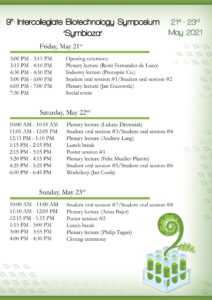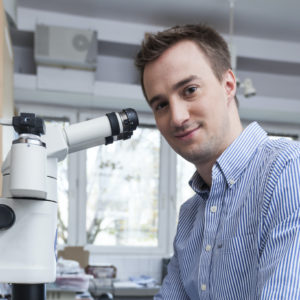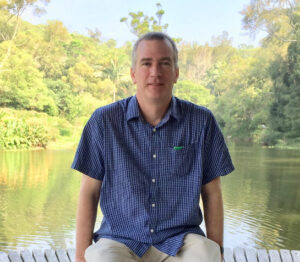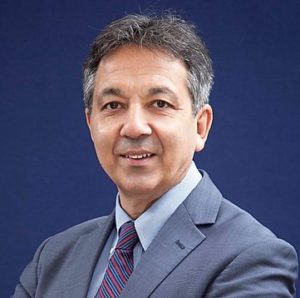Edition 2021
Conference programme
Plenary lectures
» show more info
» hide bio
|
|
Jan Guzowski, PhDInstitute of Physical Chemistry PAS, Poland Plenary lecture – Friday, 6:05 PM – 7:00 PM |
» show more info
The focus of the group is structure formation in granular materials, in particular those composed of close-packed monodisperse droplets or hydrogel beads generated using microfluidics, and applications of such structures in tissue engineering, 3D cell culture and organ-on-chip technologies.
Dr Guzowski completed his PhD in Max Planck Institute for Intelligent Systems in Stuttgart, Germany, followed by postdoc positions at IPC PAS in Warsaw with prof. P. Garstecki and at Princeton University, USA, with prof. H.A. Stone. He is laureate of the First Team programme (2017-2021) of Foundation for Polish Science.
» hide bio
» show more info
After obtaining his doctoral degree, he was the leader of 13 scientific projects founded by the Ministry of Science and Higher Education (Iuventus Plus), the National Center of Research and Development (PBS, Lider, Gekon), the Foundation for Polish Science (Team Net, Team Tech), PARP (Innovation Voucher), RPO WM, OPI (POIG). He was also a laureate of the START programme in 2009 and 2010. Łukasz Drewniak is one of the leaders in the commercialization of research results and inventions developed at the University of Warsaw. He was awarded for implementation activities by the Minister of Science and Higher Education in 2019. He is also a founder and a main shareholder of the first spin-off company of the University of Warsaw – RDLS Sp. z o.o.
» hide bio
|
|
Andrew Lang, PhDMemorial University of Newfoundland in St. John, Canada Plenary lecture – Saturday, 12:15 – 1:10 PM |
» show more info
» hide bio
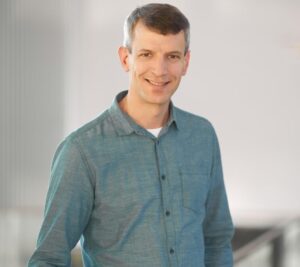 |
Felix Mueller-Planitz, PhDStanford University, US Plenary lecture – Saturday, 3:20 – 4:15 PM |
» show more info
The Mueller-Planitz lab studies core components of chromatin – the nucleosomes and the machinery that places them in the genome. Nucleosomes are crucial to human health. Aging, for instance, disrupts the nucleosome landscape, destabilizing the genome, and mutations in nucleosomes are drivers of cancers. Nucleosomes serve both as barriers that restrict access to the genome and as a medium to accumulate epigenetic marks. Correspondingly, the locations of nucleosomes in the genome are precisely controlled by so called nucleosome remodeling complexes. Remodelers move, assemble, or eject nucleosomes in an ATP-dependent fashion. Some also even the spacing between nucleosomes, setting a characteristic nucleosome-to-nucleosome distance. These ‘spacing remodelers’ thereby generate arrays of nucleosomes with a surprising regularity, and these arrays are conserved throughout eukaryotes. Their function however remains elusive.
The overarching aim of the Mueller-Planitz lab is to elucidate the biogenesis of the nucleosome landscape and dissect its biological function. To achieve this goal, his lab bridges methodologies of molecular biology, genetics, genomics, biophysics, structural biology, and enzymology. They develop cutting-edge technology to visualize individual nucleosome patterns in single cells and to dissect the mechanism of nucleosome remodeling genome-wide in vivo and in vitro.
» hide bio
|
|
Prof. Anna BajerUniversity of Warsaw, Poland Plenary lecture – Sunday, 11:10 AM – 12:05 PM |
» show more info » hide bio
|
|
Philip Tagari, PhDAmgen Inc, US Plenary lecture – Sunday, 3:00 – 3:55 PM |
» show more info
» hide bio
Workshop
|
|
Prof. Jan CoolsKU Leuven, Belgium Workshop – Saturday, 6:00 – 6:45 PM |
» show more info Jan Cools obtained his PhD degree in 2001 from the KU Leuven with a study on chromosomal defects in leukemia. From 2001 to 2003 he continued his research on the genetic causes of leukemia at Harvard Medical School (Boston, USA). After his return to Belgium, he was promoted to assistant professor in 2005 and to full professor in 2009 at KU Leuven. Jan is a group leader of VIB since 2008. His research team studies the genetic complexity of acute lymphoblastic leukemia (ALL) and uses that information to develop novel models of leukemia and novel treatment strategies. Jan has served as a board member of the European Hematology Association and has been the editor-in-chief of the open access journal Haematologica from 2012 to 2017. He is currently editor-in-chief of HemaSphere, a new open access hematology journal of the European Hematology Association. During the workshop you will have a chance to listen and learn about how to publish in peer-reviewed journals, as our speaker has more than 10 years of experience in being Editor in Chief. » hide bio
